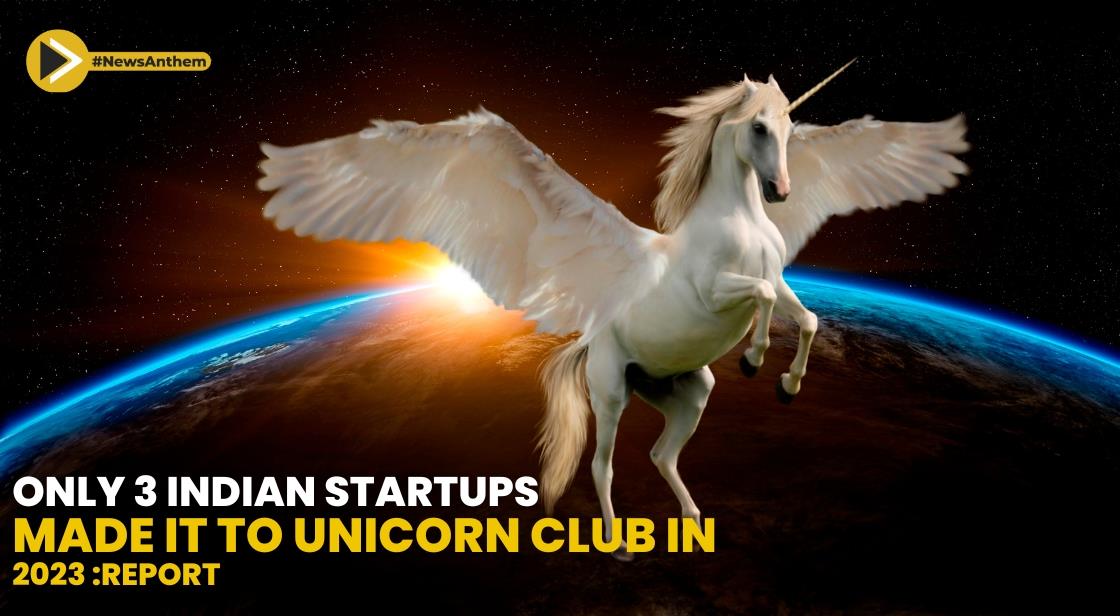Indian Startup Sector Sees Sharp Decline with Only Three New Unicorns in 2023: Report

News Synopsis
Indian Startup Sector Faces Slowdown as Unicorn Additions Drop
The Indian startup sector experiences a significant slowdown as the number of new unicorns added in 2023 dramatically declines, according to the ASK Private Wealth Hurun Indian Future Unicorn Index.
The research reveals that only three privately held companies achieved unicorn status in 2023, a sharp drop from the 24 unicorns added in the previous year.
Reflecting a Challenging Startup Ecosystem
The reduced rate of unicorn additions serves as an indication of a slowdown in India's startup ecosystem. The report highlights a decline in investor interest during what has been termed the "funding winter." Moreover, the total number of unicorns in India has decreased to 83, down from 84 in the previous year.
Unsustainable Business Models Impact Valuations
Rajesh Saluja, the CEO and Managing Director of ASK Private Wealth, suggests that unsustainable business models adopted by startups have contributed to the decline in valuations.
However, he emphasizes that funding continues to be available for companies with viable and sustainable models.
Optimism for the Future of Indian Startups
Anas Rahman Junaid, Chief Researcher at Hurun India, remains optimistic about the potential of the Indian startup ecosystem. He believes that India has the capacity to achieve a total of 200 unicorns within the next five years. Junaid emphasizes the importance of startups in driving economic growth, drawing a parallel with China's over 1,000 unicorns.
Startup Index Statistics and Growth
The ASK Private Wealth Hurun Indian Future Unicorn Index shows that the overall number of startups valued at over $50 million stands at 147 in 2023, compared to 122 in the previous year. While 18 companies were removed from the list, over 40 new startups were added. The total funding for the listed firms increased by 6 percent to reach $18.8 billion.
Valuation Methodology and Future Prospects
Hurun's valuation methodology combines regulatory filings and interviews with startup investors to determine the valuations. The index also categorizes companies as gazelles (valued at over $500 million, likely to become unicorns in three years) and cheetahs (valued at $250 million, likely to become unicorns in five years). In 2023, the index includes 51 gazelles and 96 cheetahs, reflecting growth compared to the previous year.
Upholding Investor Interest and Funding Opportunities
Despite recent governance concerns in some startups, such as Byju's, Rajesh Saluja assures that funding in the broader Indian startup ecosystem remains unaffected.
He points out the high interest among high-net-worth individuals to invest in funds dedicated to startups. The research also highlights the expedited timeline for raising funds, with a shift from a year to less than four months to secure a fund of Rs 1,000 crore.
Peak XV Partners,Sequoia,Zepto co-founder, Kaivalya Vohra,
Prominent Investors and Startup Hubs
According to the research, Peak XV Partners (formerly known as Sequoia) emerges as the largest investor, holding stakes in 37 unicorns. Bengaluru maintains its position as India's startup capital, hosting 53 potential unicorns. Additionally, Zepto's co-founder, Kaivalya Vohra, becomes the youngest member in the index at just twenty years old. The 147 enterprises represented in the index collectively employ over 1.02 lakh people.
Here are 5 key facts of the news:
-
Only 3 Indian startups made it to the unicorn club in 2023, down from 24 in 2022.
-
The total number of unicorns in India decreased to 83 in 2023 from 84 in 2022.
-
The slowdown in unicorn additions is a sign of the slowdown in India's startup ecosystem.
-
Anas Rahman Junaid, chief researcher of Hurun India, is still optimistic about the future of the Indian startup ecosystem and sees the overall number of unicorns in India touching 200 in the next five years.
-
Bengaluru remains India's startup capital, with 53 potential unicorns.
In summary, the Indian startup sector experiences a significant slowdown as the number of new unicorns added in 2023 decreases. Concerns about unsustainable business models and investor interest arise, but experts remain hopeful about India's potential to nurture more unicorns in the future.









